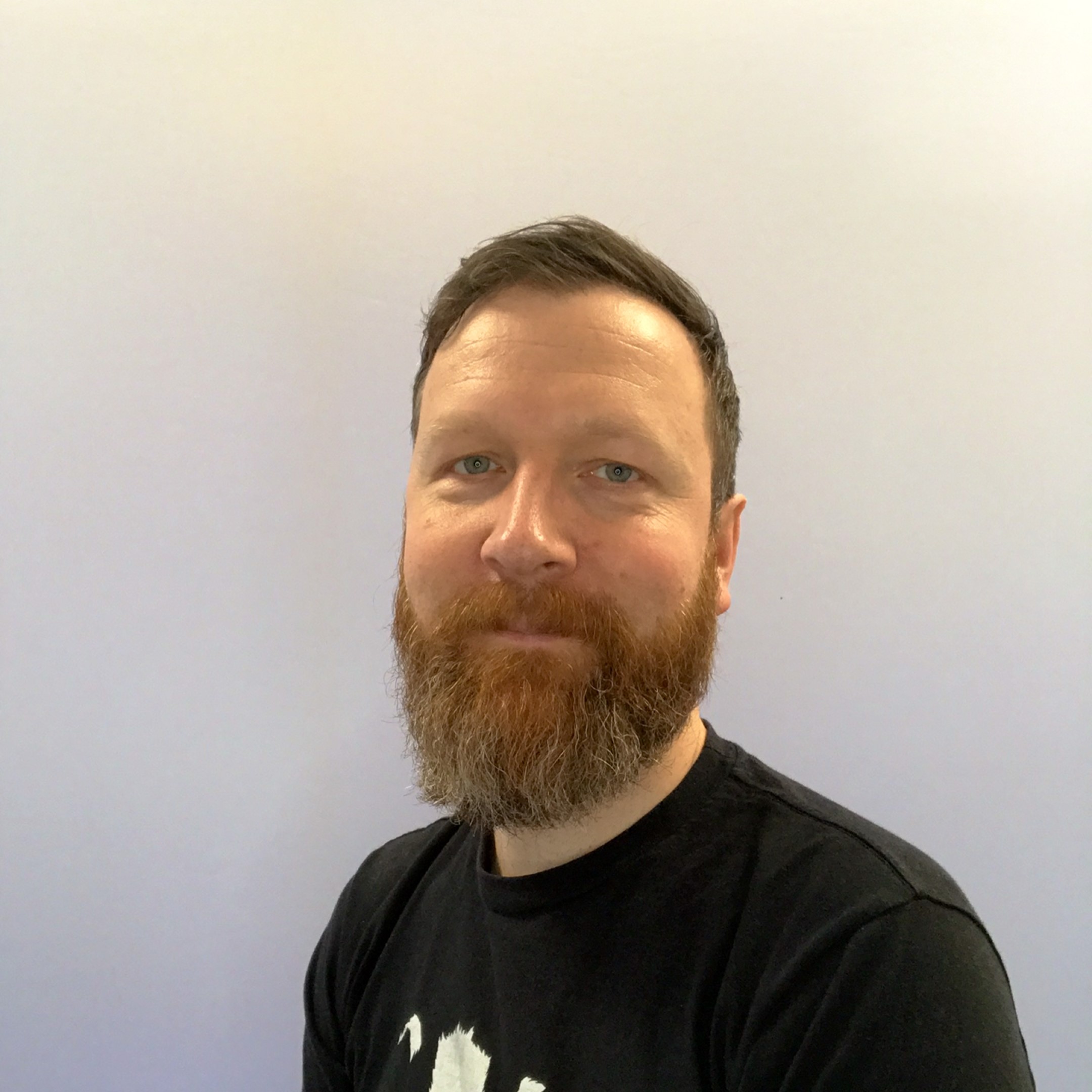Following completion of his BSc (Hons) in biochemistry at the University of Aberdeen, Alistair undertook his PhD in stem cell biology at the University of Edinburgh’s Institute for Stem Cell Research. Here, he studied the embryonic origins of the thymus – a key organ in adaptive immune system development. He joined NCARD in 2011, where he has been heavily involved with clinical trials of immunotherapy in mesothelioma. Immunotherapy can work well, but unfortunately only for less than half of patients who receive it; Alistair’s work has focused on looking for immune ‘biomarkers’ i.e. detectable signatures in the blood that may indicate whether a patient is likely to have a good response to the treatment. More recently, he has instigated a research program attempting to use radiotherapy as a tool to improve the likelihood of successful anti-tumour immunotherapy.
Dr Alistair Cook

DR ALISTAIR COOK
SENIOR RESEARCH FELLOW
BSC ABERD., PHD EDIN
CURRENT PROJECTS
- Molecular mechanisms of response and resistance to immunotherapy in mesothelioma
- Tracking of tumour PD-L1 levels in vivo using radiolabelled anti-PD-L1 and PET-CT imaging
- Mixed radiotherapy fractionation: modulating tumour microenvironment to stimulate and enhance immunotherapy
- Leveraging low-dose radiotherapy to improve immunotherapy outcomes
RECENT HIGHLIGHTS
- PhD candidate Synat Keam awarded the Peter Douglas Swift scholarship for studies into mesothelioma.
- PhD candidate Wes Wilson awarded a Young Investigator travel award for the International Mesothelioma Interest Group (IMIG) conference.
- PhD candidate Kelly MacKinnon awarded Westpac scholarship for studies into mathematical modelling of mesothelioma responses to radiotherapy and immunotherapy.
RECENT PUBLICATIONS
Immune Biomarkers
In a recently completed clinical trial testing the combination of chemotherapy and a type of immunotherapy, known as ‘checkpoint blockade’, to treat malignant mesothelioma, we collected blood and tissue samples from over 50 participants. Because the trial worked well, our team will now do a series of studies to see if we can predict which patients got the most benefit. We are looking at gene expression in tumours (both at the bulk tissue and single-cell level), DNA mutations, and examining changes in the type and function of immune cells both in blood and inside the tumour. We have received funds from a number of sources to analyse these samples:
- Anagnostou V, Nowak AK, Forde P, Cook AM, Lesterhuis JL, Brahmer J, Scharpf R, Velculescu V, Smith K, Molecular Mechanisms of Response and Resistance to Immunotherapy in Mesothelioma. US$ 258,047 (2020-2024) US Department of Defense; Team Award.
- Nowak AK, Lesterhuis JW, Forrest A, Cook AM. Using gene expression to predict successful responses to chemoimmunotherapy. US$ 98,448.00 (2019-2021) Mesothelioma Applied Research Foundation.
- Nowak AK, Cook AM, Lesterhuis JW. Using single-cell PCR to predict responses to chemo-immunotherapy – a pilot study. In-kind funding to analyse 6 patient samples. (2019-2020)
- Nowak AK, Lesterhuis WJ, Lassmann T, Cook AM, Yip S, McDonnell AM. Laboratory tests to understand why some patients with mesothelioma respond better to a combination of chemotherapy and immunotherapy. $99,876.00 (2019-2020) Cancer Council of Western Australia.
- Nowak AK, Francis R, Hegi-Johnson F, MacManus MP, Akhurst T, Morandeau L, Cook AM, Donnelly PS, Rudd SE, Roselt P, John T, Ward T. Imaging biomarkers of response to immunotherapy in malignant mesothelioma. $438,600 (2022-2025) iCare Dust Diseases Board
Radio-immunotherapy
Checkpoint blockade immunotherapy has been used to treat a growing number of cancer types. It can work amazingly well for some people, and not at all for others. There is evidence that radiotherapy may be a useful tool to increase the proportion of people who benefit, and we have received funding from both the Cancer Council of WA and Cancer Australia to help us understand the best way to combine these to treatments:
- Ebert M, Cook AM, Nowak AK, Gill S, Jeraj R, McDonnell AM. Optimising the combination of radiotherapy and immunotherapy for cancer therapy. $98,632.06 (2019-2020) Cancer Council of Western Australia.
- Ebert M, Cook AM, Nowak AK, Gill S, Jeraj R. Mixed radiotherapy fractionation: modulating tumour microenvironment to stimulate and enhance immunotherapy. $597,521 (2019-2022) Cancer Australia.
- Cook AM. Leveraging low-dose radiotherapy to improve immunotherapy outcomes. $100,000. Tour de Cure (2025-2027)
- Cook AM, Ebert MA, Keam S, D’Alonzo RA, Nowak AK, Gill S. Radiation-induced vascular remodelling to boost immunotherapy outcomes. US$ 98,645(2023-2025) Mesothelioma Applied Research Foundation.
- Cook AM. Harnessing synergy between radiotherapy and immunotherapy to improve outcomes in mesothelioma. Dust Diseases Board Fellowship. $240,000 (2023-2026). iCare Dust Diseases Care.
Preclinical imaging with radiolabelled PD-L1
- Ioppolo J, Francis R, Espedal H, Lenzo N, Lam V, Mamo J, Cook AM, Hoang T, Al-Ogaili Z, Dwivedi G, Waters S, Fear M. Gamma Counter to Support Clinical and Pre-Clinical Research at WA National Imaging Facility Node. $72,375 (2023) NHMRC Equipment Grant
- Hoang T, Mohamed S, Ioppolo J, Espedal H, Richardson K, Cook AM, Morandeau L, Chin M, Francis R, Nowak A, Ward T. Tracking PD-L1 modulation in mesothelioma using advanced in vivo imaging. $271,788(2024-2026) iCare Dust Diseases Care.
- Mohamed S, Ioppolo J, Hoang T, Espedal H, Morandeau L, Cook AM, Francis R, Nowak A. Zirconium-89 labelled antibodies for imaging PD-L1 dynamics in mesothelioma in response to immunotherapy and chemotherapy. $29,825 (2023-2024) Charlies Foundation for Research; Discovery Grant Program.
- Ioppolo J, Cook AM, Mohamed S, Hoang TS, Espedal H, Morandeau L, Francis R, Nowak A. Zirconium-89 labelled antibodies for imaging PD-L1 dynamics in mesothelioma in response to immunotherapy and chemotherapy. $20,000 (2023-2024). ANSTO/ANZSNM Research Grant.
See Dr Alistair Cook’s UWA Profile for a full list of publications

